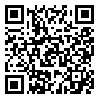1. Papalia DE, Olds SW, Feldman RD. Desenvolvimento Humano. São Paulo: McGraw Hill; 2010. [Original: Human Development. 9th edition. New York: McGraw Hill; 2008].
2. González MG, Swanson DP, Lynch M, Williams GC. Testing satisfaction of basic psychological needs as a mediator of the relationship between socioeconomic status and physical and mental health. J Health Psychol. 2016;21(6):972–82. [
DOI]
3. Zimmerman BJ. A social cognitive view of self-regulated academic learning. Journal of Educational Psychology. 1989;81(3):329–39. [
DOI]
4. Hong E. Differential stability of state and trait self-regulation in academic performance. The Journal of Educational Research. 1998;91(3):148–59. [
DOI]
5. Srivastava R, Joshi S. Relationship between self-concept and self-esteem in adolescents. International Journal of Advanced Research. 2014;2(2):36–43.
6. Soomero N, Bibir R, Latif M, Kamran B, Ahmed I. Differences in level of self-esteem of housewives and working women. Medical Channel. 2013;19(3):48–50.
7. Ansarinejad N. Social -psychological analysis of delinquency among tehran correction center clients. Journal of Social Welfare. 2012;12(45):423–50. [Persian] [
Article]
8. Kort-Butler LA, Hagewen KJ. School-based extracurricular activity involvement and adolescent self-esteem: a growth-curve analysis. J Youth Adolesc. 2011;40(5):568–81. [
DOI]
9. Badeleh M, Fathi M, Aghamohammadian HR, Badeleh MT. The effect of group cognitive behavioral hypnotherapy on increasing self-esteem of adolescents. J Res Dev Nurs Midw. 2013;10(1):17–24. [Persian] [
Article]
10. Kobasa SC, Maddi SR, Puccetti MC. Personality and exercise as buffers in the stress-illness relationship. J Behav Med. 1982;5(4):391–404. [
DOI]
11. Maddi SR, Khoshaba DM. Hardiness and mental health. J Pers Assess. 1994;63(2):265–74. [
DOI]
12. Zhang L fang. Hardiness and the Big Five personality traits among Chinese university students. Learn Individ Differ. 2011;21(1):109–13. [
DOI]
13. Azimi D, Shariatmadar A, Naimi E. The effectiveness of psychological toughness training on academic self-efficacy and social acceptance of students. Educational Psychology. 2017;14(48):87–103. [Persian] [
Article]
14. Eysenck HJ, Wilson G. Know your own personality. London: Penguin Books; 1976.
15. Ryan RM, Connell JP. Perceived locus of causality and internalization: Examining reasons for acting in two domains. J Pers Soc Psychol. 1989;57(5):749–61. [
DOI]
16. Delavar A. Educational and psychological research. Tehran: Virayesh Pub; 2015. [Persian]
17. Hormezinejad, M. Simple and multiple relationship between self-esteem, social anxiety and perfectionism with self-expression in students of Shahid Chamran University of Ahvaz, [MSC Thesis]. Ahvaz: Islamic Azad University; 2001. [Persian]
18. Alborzi M. Investigating the psychometric properties of the Academic Self-Management Questionnaire (SRQ-A) in primary school students. Journal of Educational Psychology Studies. 2009;6(10):1–18. [Persian] [
Article]
19. Shokoohi Fard S, Hamid N, Sodani M. The effect of hardiness training on quality of life of teachers training female students. Knowledge and Research in Applied Psychology. 2013;14(13):14–25. [Persian] [
Article]
20. Aghajani MJ, Tizdast T, Mirhashemi SM. Effect of hardiness training on self-esteem and adjustment of addicted male. Journal of Holistic Nursing and Midwifery. 2006;26(82):1–9. [Persian]
21. Dabbagh H, Ghabel Damirchi B, Gharayagh Zandi H, Khanjani GH. The relationship between mental toughness and source of sport confidence of elite male and female athletes in individual and team discipline. Journal of Motor and Behavioral Sciences. 2020;3(3):293–302. [Persian] [
Article]
22. Rhodewalt F, Agustsdottir S. On the relationship of hardiness to the type A behavior pattern: perception of life events versus coping with life events. J Res Pers. 1984;18(2):212–23. [
DOI]
23. Kiamarsi A. Study of Hardiness Scale [MSC Thesis]. Ahvaz: Islamic Azad University; 1997.Persian. [Persian].
24. Subramanian S, Vinothkuma M. Hardiness personality, self- esteem and occupational stress among IT professionals. Journal of the Indian Academy of Applied Psychology. 2009;35:48–56.
25. Bodaghi A, Sheikholeslami R. Effectiveness of self-determination skills training on academic self-regulation and psychological hardiness among students. Curriculum Research. 2020;10(1):300–21. [Persian]
26. Haghighi J, Attari Y, Sinarahemi SA, Solaimaninia L. The relationship of hardiness and its components with mental health in Shahid Chamran University student. Psychological Achievements. 1999;6(2):1–18. [Persian] [
Article]
27. Kobasa SC. Stressful life events, personality, and health: an inquiry into hardiness. J Pers Soc Psychol. 1979;37(1):1–11. [
DOI]





